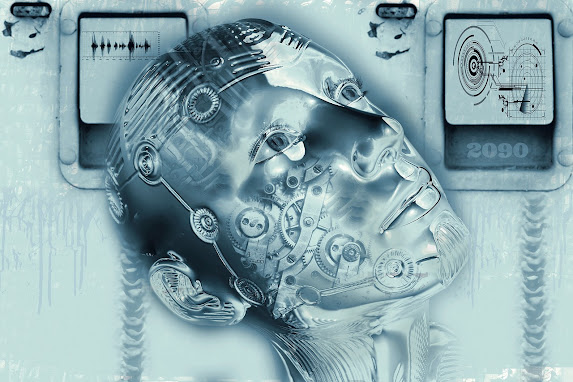In recent years, the field of Artificial Intelligence (AI) has witnessed tremendous growth, revolutionizing various industries and reshapi...
In recent years, the field of Artificial Intelligence (AI) has witnessed tremendous growth, revolutionizing various industries and reshaping the way we live and work. From self-driving cars to virtual assistants, AI-powered technologies have become an integral part of our daily lives.
In this blog post, we will
delve into the fascinating world of AI, exploring its limitless possibilities
and discussing how it continues to shape the future.
Outlines
What is
Meant by Artificial Intelligence?
Who is the
Father of AI?
Why is
Artificial Intelligence Important?
Who Used AI
for the First Time?
What is AI
Used for Today?
What are
Examples of AI?
How Powerful
is Artificial Intelligence?
Is
Artificial Intelligence a Software?
Conclusion:
What is Meant by Artificial Intelligence?
Artificial Intelligence, often abbreviated as AI, refers to the development of computer systems that can perform tasks that typically require human intelligence. These systems are designed to analyze data, learn from patterns, and make informed decisions or predictions.
AI technology aims to replicate human cognitive
abilities, such as perception, reasoning, and problem-solving, enabling
machines to perform tasks autonomously.
Who is the Father of AI?
The concept of AI dates back to the 1950s when researchers began exploring the idea of creating machines capable of intelligent behavior. One of the pioneers in this field is Alan Turing, often referred to as the father of AI.
Turing's work
laid the foundation for modern AI by introducing the concept of the
"Turing test," which assesses a machine's ability to exhibit
intelligent behavior indistinguishable from that of a human.
Why is Artificial Intelligence Important?
Artificial Intelligence has become increasingly important in today's world due to its potential to enhance efficiency, productivity, and decision-making across various industries.
AI technology can process and analyze vast amounts of data
at incredible speeds, leading to valuable insights and informed
decision-making. It enables automation, streamlines processes, and improves
overall operational efficiency, saving time and resources.
Who Used AI for the First Time?
The field of
AI has evolved over time, and multiple researchers and organizations have
contributed to its development. One notable example is the work of John
McCarthy, Marvin Minsky, Allen Newell, and Herbert Simon in the late 1950s and
early 1960s. They founded the field of AI and conducted pioneering research,
laying the groundwork for subsequent advancements.
What is AI Used for Today?
AI is widely used across various industries and applications today. One prominent application is in the healthcare sector, where AI technology assists in medical diagnosis, drug development, and patient monitoring.
In the finance industry,
AI algorithms are used for fraud detection, risk assessment, and algorithmic
trading. AI is also employed in autonomous vehicles, voice assistants,
recommendation systems, and natural language processing.
What are Examples of AI?
AI technology has produced numerous impressive examples across different domains. Self-driving cars, powered by AI algorithms, navigate roads and make decisions in real-time. Virtual personal assistants like Siri, Alexa, and Google Assistant utilize natural language processing and machine learning to understand and respond to user commands.
AI-powered chatbots, such as GPT
(Generative Pre-trained Transformer), can engage in human-like conversations,
providing customer support or information.
How Powerful is Artificial Intelligence?
Artificial Intelligence has showcased remarkable capabilities and continues to evolve rapidly. AI algorithms can process massive datasets, recognize patterns, and make accurate predictions. Machine Learning, a subset of AI, empowers systems to learn from data and improve their performance over time.
With advancements
in Deep Learning and neural networks, AI has achieved breakthroughs in image
recognition, natural language processing, and game-playing, surpassing
human-level performance in some cases.
Is Artificial Intelligence a Software?
Artificial Intelligence is not limited to a single software. Instead, it encompasses a wide range of techniques, algorithms, and tools that enable machines to exhibit intelligent behavior.
AI systems can be implemented through specialized
software applications, machine learning frameworks, or customized algorithms,
depending on the specific requirements and goals of the AI application.
Conclusion:
Artificial
Intelligence has become a transformative force, revolutionizing various
industries and opening up new possibilities for innovation. Its ability to
mimic human intelligence and automate complex tasks has propelled advancements
in technology and improved our lives in countless ways. As AI continues to
evolve, it holds the potential to drive further breakthroughs and shape the
future in unprecedented ways.
Read More :
10 Popular Ways to Make Money Online Using ChatGPT






No comments